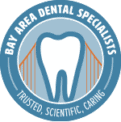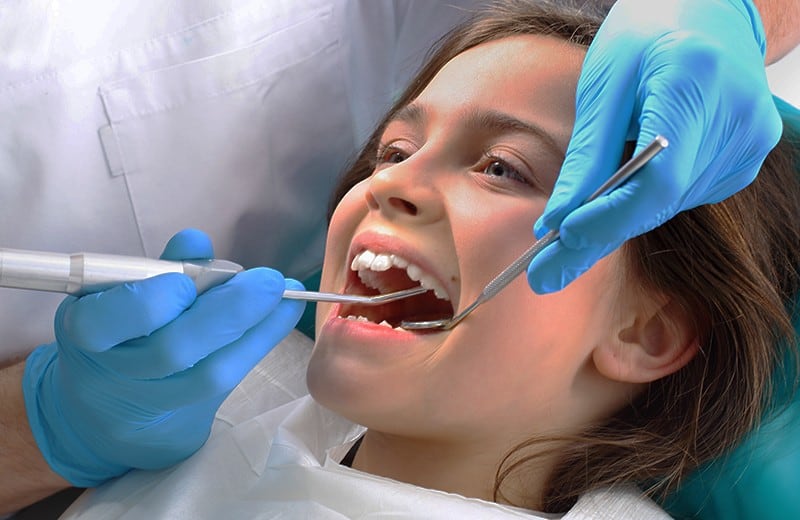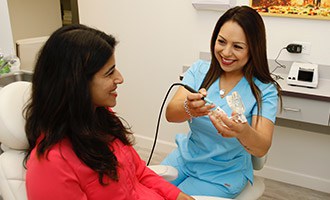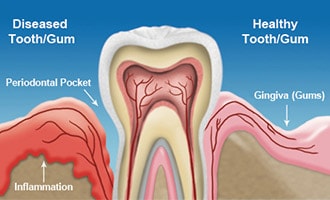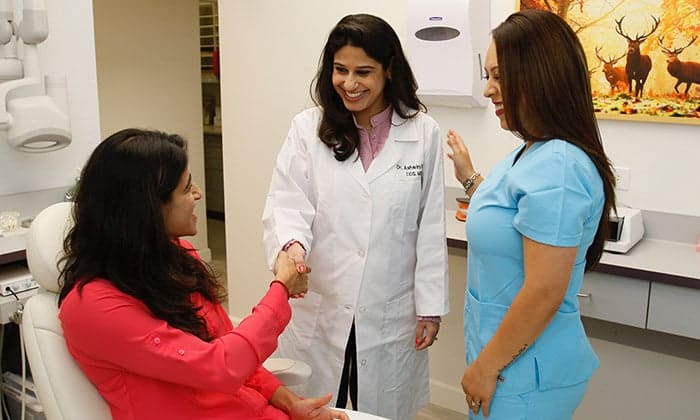
Regular professional dental cleanings are vital to keeping your teeth and gums healthy and preventing gum disease from taking hold. If gum disease is allowed to progress, it can result in extensive damage to the gum and bone surrounding the teeth and eventual tooth loss. It is therefore crucial to regularly check for any presence of gum disease and treat it as soon as it is detected.
We provide thorough dental cleanings to maintain your oral health, as well as gentle and effective treatment for gum disease. Our hygienist uses high-tech instruments to make your cleanings comfortable. Our doctors are very experienced at detecting and treating gum disease, and monitor your situation closely at each visit so they can bring it under control fast when found.
Regular Dental Cleaning Details
Our friendly hygienist provides thorough cleanings that are gentle on the teeth. She also provides personalized education on how to best take care of your oral health at home.
Ultrasonic Scaler
In addition to hand instruments, she uses an ultrasonic scaler to gently and effectively remove the accumulated bacterial deposits from your teeth. An ultrasonic scaler has a vibrating tip that dislodges these deposits and shatters the cell membranes of the bacteria, thus destroying them. These scalers clean deeper than conventional scaling instruments and can be adjusted for your comfort.
Home Oral Care Following Cleaning

Taking care of your teeth and gums at home is vital for your oral health. Our hygienist will give you instruction on the best brushing and flossing techniques, and will show you what you can do to be maximally effective in maintaining your oral health between visits. The home oral care education you receive is customized to your personal needs.
What is Gum Disease?
Gum disease is an infection that results from a build-up of bacteria on the teeth known as plaque. As more bacteria accumulate, they form hard deposits known as calculus. The bacteria give off toxins that erode the teeth, cause the gums to detach from the teeth and eat away the supporting bone. If left untreated, it can lead to gum recession, bone loss and eventual loss of teeth.
We are able to effectively treat gum disease and restore your oral health.
Scaling & Root Planing (Deep Cleaning) Treatment
The main treatment for gum disease is a type of deep cleaning known as scaling and root planing. Scaling is the action of thoroughly removing the deposits of bacterial plaque and calculus resting above and below the gum line. Our hygienist uses the ultrasonic scaler to remove these deposits comfortably and efficiently.
Root planing is the removal of any rough surfaces and residual calculus from the roots of the teeth. Root planing creates a clean and smooth surface which makes it easy for the gums to reattach to the teeth and difficult for any new bacteria to lodge and multiply.
Thorough removal of the bacteria creates a healthy environment in which the gums can heal and firmly support the teeth. After healing, any pain or sensitivity resulting from the infection goes away.
Follow-Up Maintenance Cleanings
After the infection has been brought under control, regular maintenance cleanings are necessary to remove any new accumulations of bacteria and maintain your oral health, as even the best home oral care won’t be able to get it all. The doctor will schedule you for maintenance cleanings, and will determine how often you should receive them based on your personal circumstances.
Gum Disease Causes & Symptoms
There are many things that allow gum disease to take hold and spread. Poor oral hygiene is the most common contributor. Other factors such as smoking, poor diet, other health issues in the body and certain medications can also provide an environment where bacterial infection can take root easily.
Symptoms of gum disease include:
- Gums that are red, swollen or tender
- Gums that bleed during or after brushing your teeth
- Gums that have receded from the teeth or teeth that look longer than usual
- Teeth that are sensitive
- Teeth that have shifted position
- Teeth that have become loose
- Bad breath that will not go away
- A lingering bad taste in your mouth
- Painful chewing
- An abscess originating from below your gum line
It is important to detect and treat gum disease as soon as possible, as treatment is easier the earlier it is detected. If you notice you have any of the above symptoms, come see one of our doctors immediately for a comprehensive exam and evaluation. They will tell you if you have gum disease, how far it has progressed and what treatment they recommend to treat the infection and restore your oral health.
Contact us to request an appointment
Frequently Asked Questions
Why do I need a dental cleaning? Isn’t brushing and flossing enough?
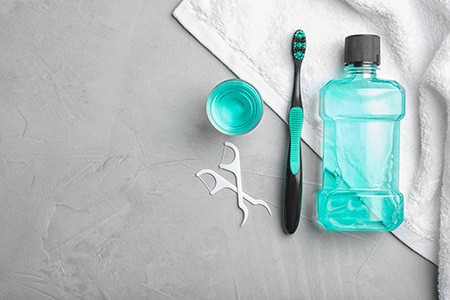
How often should I have my teeth professionally cleaned?
The American Dental Association (ADA) recommends dental exams and teeth cleanings every six months or twice a year for adults and children. Some people may need more frequent visits to prevent cavities and gum disease; crooked teeth or overcrowding can create spaces where bacteria and food debris build up faster. Patients with gum disease tend to need cleanings more often, but men and women with excellent oral health may require fewer visits. Dr. Bhave will discuss your dental hygiene and the frequency of your teeth cleanings during your appointment.
Is it true gum disease is connected to other diseases and conditions?
Several bodies of research have indicated that gum disease can be linked to heart disease and diabetes, and researchers believe this connection has to do with inflammation. These diseases feed off each other, making them harder to control or manage with medications and other treatments. Gum disease may make it more difficult to control blood sugar levels, and high blood sugar levels may increase bacteria in the mouth, causing a cyclical issue that’s challenging to treat if you don’t consider oral and overall health. Genetics may also play a role in gum disease, and patients should be more diligent about dental hygiene habits if they have a parent or close relative with periodontitis.
Are children at risk of periodontal disease?
Gum disease rarely affects children and is only slightly more common among teens. However, children and adolescents need to practice good dental hygiene to prevent gum disease later in life. Brushing twice daily and learning to floss correctly will create lifelong habits for excellent oral health. Parents should understand the warning signs of gum disease, including red, swollen, and bleeding gums, and schedule a dental exam right away if they notice these issues.
Is gum disease contagious?
Gum disease happens when bacteria spread underneath the gums and trigger the body’s inflammatory response. While this condition is not technically contagious, the bacteria can spread through saliva. If one family member has gum disease, they may expose other loved ones by sharing straws, cups, utensils, and toothbrushes. You can maintain good oral health for everyone in your household by avoiding sharing these items and scheduling regular dental exams and cleanings.
Why is it necessary to have periodontal treatment and teeth cleanings?
Periodontal treatment is necessary to maintain a healthy mouth with all your teeth. When gum disease progresses unchecked, the gums and jawbone degrade, putting the entire support system of your teeth in jeopardy. Advanced periodontitis eventually causes tooth loss as the teeth shift and loosen with jawbone degradation. Losing one tooth tends to lead to more tooth loss, which affects your speech, chewing abilities, and facial appearance.
